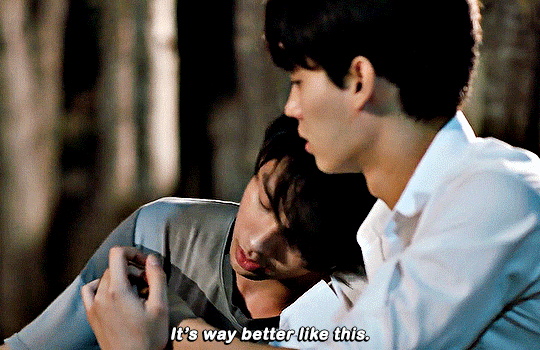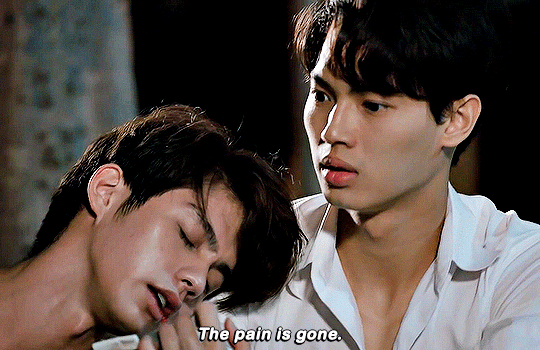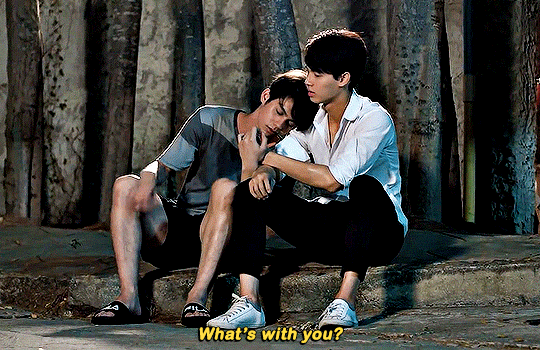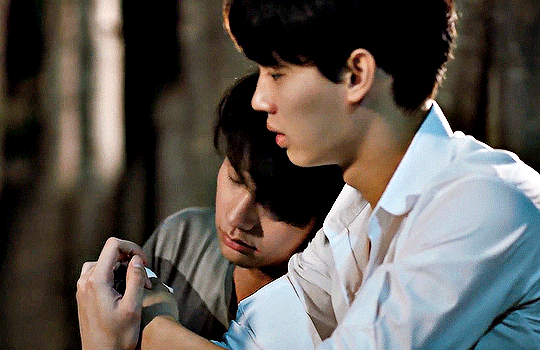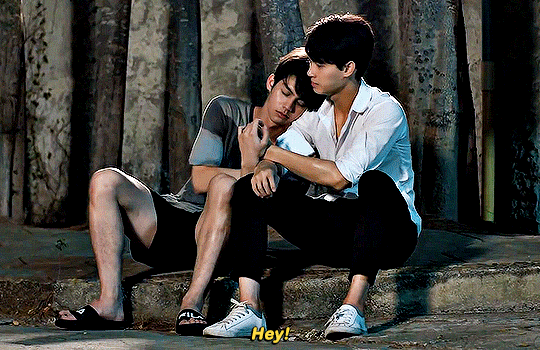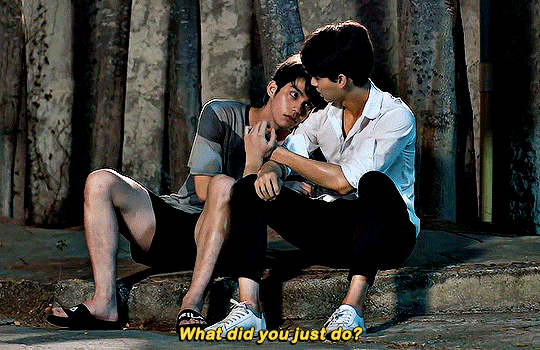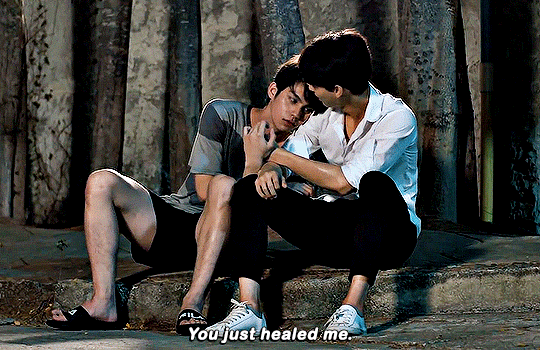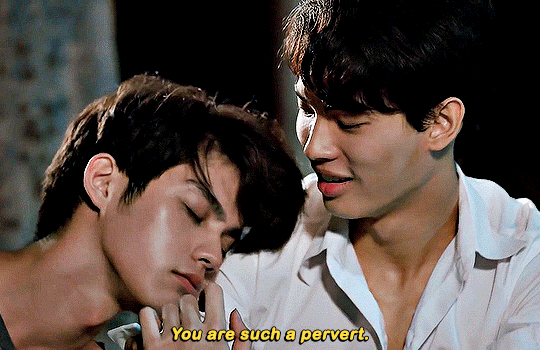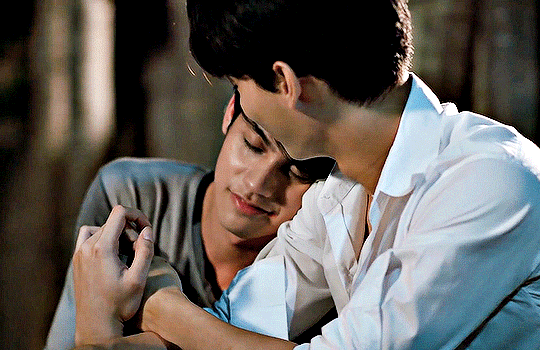น้องปลื้ม(pluem) He/Him. Tall Thai Boy Loving BLs, Anime, Video Games and Other Nerdy Stuff.
Don't wanna be here? Send us removal request.
Text
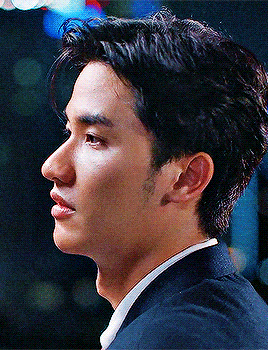
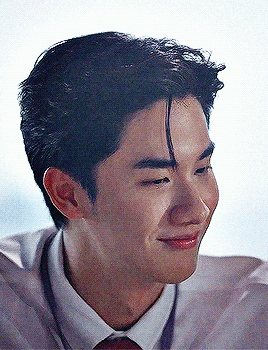
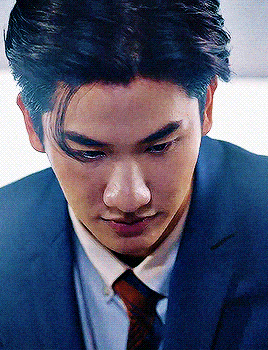
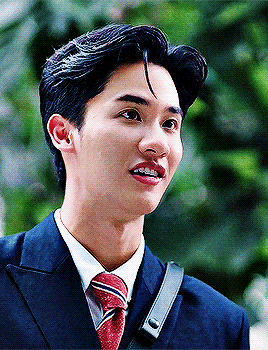
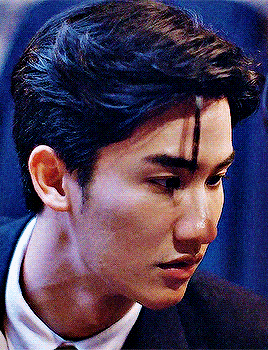
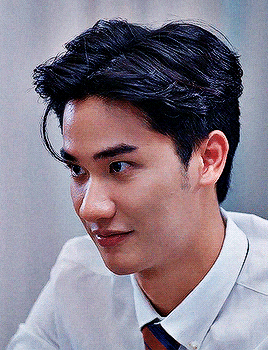
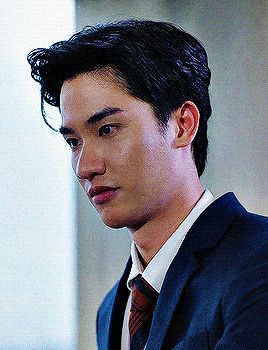
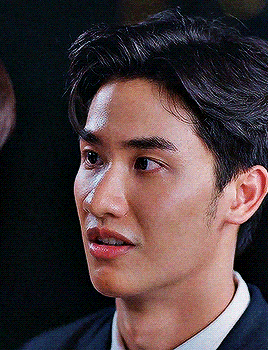
𝐊𝐚𝐫𝐚𝐧'𝐬 ✨𝐡𝐚𝐢𝐫 𝐬𝐭𝐫𝐚𝐧𝐝✨𝐚𝐩𝐩𝐫𝐞𝐜𝐢𝐚𝐭𝐢𝐨𝐧 𝐩𝐨𝐬𝐭 | 𝐄𝐏𝟐
377 notes
·
View notes
Text
Every few days I sit quietly and think about Mix Sahaphap in Moonlight Chicken, as a treat.
73 notes
·
View notes
Text

this is so fucking wild to me I can’t stop laughing literally no wonder the perceived top shortage exists
21K notes
·
View notes
Text
Reblog to give prev a fucking break holy shit y’all
88K notes
·
View notes
Text
The way Ohm Thitiwat never fails to show up and show out at Pride. Stan this man!

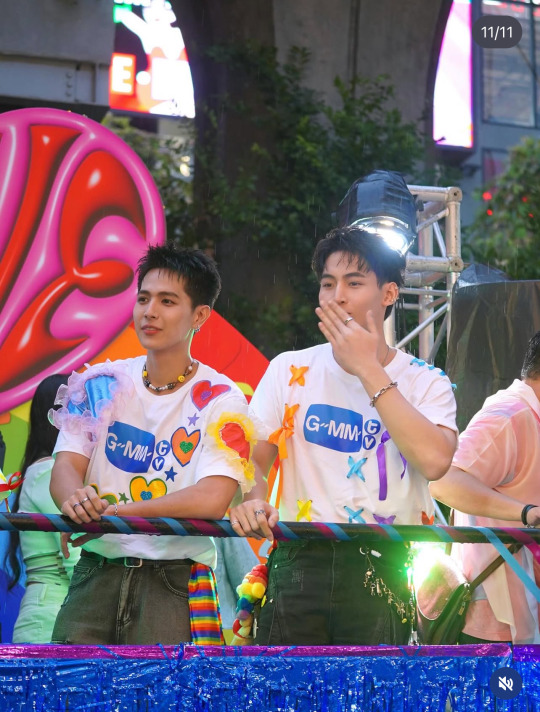

(Source)
36 notes
·
View notes
Text
11K notes
·
View notes
Note
I know you think having a gf thing is a joke and honestly I don't think it's a problem when bl actors have gfs or bfs, but they do get massive hate for that for real. do you know that new got so much hate for having a girlfriend? he still gets hate comments from toxic shippers that he should die for heart failure because he got heart problem? and that account that was hating on dunk was really pushing for hate. so of course it was the problem. the number one reason bl/gl actors get massive hate and death threats is literally having a gf/bf. it's a sad reality but i don't think you should treat it lightly.
I don't think this situation is a joke.
It -is- a joke.
And to show you how serious I am about this, I'm not even going to include images. This is just a giant wall of text.
Because outside of the BL-sphere, what are the repercussions of Dunk really dating a girl? What issues would he face if he was really straight? I'm going to skip over bisexuality because Lord knows half these fans don't even register that as a thing. So what harm would come his way if he was an actual heterosexual man?
Nothing. None. Nada.
If he was dating a girl, it would hurt his branded pair, but he could pivot. He could still work in other roles outside of the pair which he has done because being straight or being perceived straight isn't an issue. He would still have a job. He could even do something else outside of the industry. He'd be fine.
Because the issue isn't Dunk having a girlfriend. The issue is him stepping out on his branded pair because people are real weird about monogamy, especially when it comes to two boys because queerness actual queer people are scary to them.
So since you wanted to start with Tay and New, let me remind you that New get threats for having a girlfriend, but when Gun and Tay kissed during New's live, people went out of their way to call Gun, who is perceived as the more effeminate one, a straight up fag in the comments of his posts. Tay also got so much hate that he made a video and people's biggest issue was how could he go from such a masculine guy like New to such a twink like Gun who has never stated his sexuality. Because the issue wasn't Tay 'cheating' on his partner (with the partner literally being right next to him), but was the possibility of Tay kissing an actual gay guy.
Milk of MilkLove was rumored to be dating Noeul of BossNoeul and both of them received online hate at the mere thought they were breaking up their ships, but Noeul has received far more online and in-person hate once he started dressing and presenting a bit more effeminate than previously.
Freen of BeckyFreen was dating Seng formerly of BillySeng. The hate was ridiculous and it has followed Seng even after he departed from Idol Factory, which can easily be seen in the comment section of his posts. I genuinely feel bad for the boy, yet he still is working.
So you know who I do feel bad for all of the time? Publicly out queer folks in this industry!
Max of MaxTul dates women. People knew that and hated it because he was 'cheating' on Tul. But he still had work, and he still has work now. Because being straight does not harm people. Online hate is real. Cyberbullying is real. But Max could pivot if he wanted to like Nanon, Bright, and Win. But you know who never said he was dating anyone? The actual gay guy, Tul! And who retired from acting before he announced he was dating a man? Tul.
Cooheart has gone on record stating that being an openly gay man in the BL industry has severely limited his options. He will not be able to play a straight character because people know he is gay, so the online harassment he receives isn't because of not being faithful to a branded pair, but because he is actually gay, and that harassment has translated into him getting less jobs. He cannot pivot. He is essentially stuck.
When Supanut was hanging out with Sailub, he received more online and in-person harassment because he is the openly queer man. Sailub received comments that he was disrespecting Pon per the usual, but Supanut received comments that were directed not at him just trying to break up a ship, but about him being queer. People were equivocating him to being basically a gay hussy, who just wanted to wreck all the ships, which makes me very interested in what fan interactions will look like once I'm the Most Beautiful Count airs.
Daou gets lots of comments about disrespecting Offroad by hanging out with other guys, but the comments that really upset him were the ones saying HE WAS DISGUSTING FOR POSSIBLY BOTTOMING! Offroad stays quiet mostly, but he was bothered by people saying he was BULKING UP TOO MUCH AS A QUEER MAN!
I'm not even touching Mew and Gulf, but only one of them was labeled a predator and it wasn't the straight one!
So just because some of y'all want to take Joong liking a post about Dunk having a girlfriend seriously does not mean I need to. The online harassment is disgusting because people have parasocial relationships with actors who are simply doing their jobs, but I am not going to sit here on Tumblr dot com slash Respect the Petty and entertain this made up drama that stemmed from Joong liking a post about Dunk being perceived as a straight guy when openly gay people are being significantly more harassed, targeted, and limited for being gay in an industry that profits off of gayness.
Take all this energy you have for me and meet me in the My Sweetheart Jom chat on Friday, so every time someone mentions how Saint isn't believable in his role because he is a 'bottom,' you can give them the same lecture you want to give me about the seriousness of online harassment and its real-world repercussions.



Kay? Okay!
#toxic fandom#lgbtq+#poeple like annon make me want to jump off the BL fandom ship#like stop being weird about shit like that dude!
285 notes
·
View notes
Text
I am so proud of the Hungarian ppl right now.
It was the 30th Pride.
It was banned.
200.000 people were there.




Thank you for this boost today. Thank you for showing up and standing up for our right!
Photo cr.: Telex.hu
17K notes
·
View notes
Text
decentralize and clean up your life!!!
use overdrive, libby, hoopla, cloudlibrary, and kanopy instead of amazon and audible.
use firefox instead of chrome or opera (both are made with chromium, which blocks functionality for ad-blockers. firefox isn't based on chromium).
use mega or proton drive instead of google drive.
get rid of bloatware
use libreoffice instead of microsoft office suite
use vetted sites on r/FREEMEDIAHECKYEAH for free movies, books, games, etc.
use trakt or letterboxd instead of imdb.
use storygraph instead of goodreads.
use darkpatterns to find mobile game with no ads or microtransactions
use ground news to read unbiased news and find blind spots in news stories.
use mediahuman or cobalt to download music, or support your favorite artists directly through bandcamp
make youtube bearable by using mtube, newpipe, or the unhook extension on chrome, firefox, or microsoft edge
use search for a cause or ecosia to support the environment instead of google
use thriftbooks to buy new or used books (they also have manga, textbooks, home goods, CDs, DVDs, and blurays)
use flashpoint to play archived online flash games
find books, movies, games, etc. on the internet archive! for starters, here's a bunch of David Attenborough documentaries and all of the Animorphs books
burn your music onto cds
use pdf24 (available online or as a desktop app) instead of adobe
use unroll.me to clean your email inboxes
use thunderbird, mailfence, countermail, edison mail, tuta, or proton mail instead of gmail
remove bloatware on windows PC, macOS, and iOS X
remove bloatware on samsung X
use pixelfed instead of instagram or meta
use NCH suite for free software like a file converter, image editor, video editors, pdf editor, etc.
feel free to add more alternatives, resources or advice in the reblogs or replies, and i'll add them to the main post <3
last updated: march 18th 2025
81K notes
·
View notes
Text
You’re not depressed. You just need $250,000 in your bank account.
190K notes
·
View notes
Text
reblog to give writers the power to write 10k words of porn without plot
6K notes
·
View notes
Text
Theory of Love RomCom Roundup: Stand By Me (1986)
We've done it. Back in February, we started a quest to re-watch Theory of Love, this time pairing each episode with its namesake film. Three (Four? Five?) months have flashed by in a blink of an eye. For our last roundup, we watched the special episode of TOL and the American classic Stand By Me. Though this movie is one of the best known film adaptations of Stephen King's work I had never seen it. I've wanted to for while, after hearing so much gushing praise, so this was the film I had been looking forward to the most. I'm very thankful this project gave me an excuse to cross it off my list. For their last posts of the project, @lurkingshan penned a beautiful send-off for Khai and Third, while @bengiyo wrote about the violence running through the film.
[Note: When writing this I read this film study, which I found to be pretty fun. Especially if you're interested in reading about how language works in the film, I recommend a skim, at the very least.]

[ID: Scene from Stand By Me. Four young boys walk across a railroad track, which stretches far above a deep reservoir. Teddy confidently strides ahead. Chris looks at the other two boys before he steps forward. Vern and Gordie follow. End ID.]
"By the time we get there the kid won't even be dead anymore."
- Teddy Duchamp, Stand By Me
Stand By Me is a coming-of-age drama set in Castle Rock, Oregon in 1959 (as opposed to its original setting: Maine in 1960. Bizarre change!). It's almost impossible to avoid hearing about this film through the grapevine if you live in America. It's something that sits in our nostalgic consciousness just as much as other films of its ilk (Forrest Gump, My Girl (1991), The Goonies, Grease, The Outsiders, E.T. the Extra-Terrestrial, Back to the Future, etc.); it's a film that consciously sits in and interrogates nostalgia itself, casting back to and utilizing '50s anachronisms with all the contemporary flair '80s films met the era with. Stand By Me is a quintessential example of a movie both undeniably of the '80s and of Stephen King's brain; his works have come to retrospectively define the '80s just as much as John Hughes' or Steven Spielberg's.
Though the decision to set the film a year prior to its setting in the original book still strikes me as somewhat arbitrary, doing so sets the film even more surely in a period before a massive social and cultural shift in America. This is before Watergate, before Vietnam, before the assassination of JFK, and most assuredly before the counterculture movement of the '60s. But the era the film was made in is ever-present - when Teddy talks about his dad's time in the Korean War and his resultant violent PTSD, everyone watching is thinking of the Vietnam War, which had only formally ended a little over a decade prior. Every broken, abusive family in the film exposes the lies of Reagan-era valorization of "traditional family values" supposedly exemplified in the '50s. Stand By Me is steeped in the cynicism of those who felt robbed of a promise of a safe childhood or a prosperous (and trauma-free) adulthood. For better or worse, this speaks to a thread that runs through all of King's books - he looks for truth, always.
It's pretty interesting to compare this with My Girl (2003). It's a similar kind of coming-of-age movie but anachronistic '80s nostalgia for the American '50s feels markedly different than Thai nostalgia for the '80s (or, rather, the period that began in 2523). Not least of all because there's different histories, different cultural and continental contexts, and in some ways, different traumas. That's not to say there aren't similarities, especially considering that the period saw a relatively unstable democracy, a brief military rule, the world's fastest growing economy followed by a major crash and financial crisis. They also had to deal with the fallout of the Vietnam War, as Vietnamese refugees fled into the country followed by occupation forces. In a way, both films reflect perspectives of children existing during periods of turmoil and massive cultural shifts. But the way their respective filmmakers engage with their larger social contexts (or don't) could not be more different. My Girl's creators seem to be driven largely by a more optimistic take of nostalgia, while Stand By Me takes a more critical approach. In the midst of all this, the kids still behave so similarly. It's their environments that take them in different directions. And their storytellers have different goals.
The 1982 novella The Body (initially published in the collection Different Seasons; incorporates two prior short stories: "Stud City" (1969) and "The Revenge of Lard-Ass Hogan" (1975)) marked King's first major departure from the horror genre - this collection also features Rita Hayworth and the Shawshank Redemption, Apt Pupil, and The Breathing Method, all far more dramatic than his prior work. At the time, King was struggling with addiction, writing some of his most prolific works to date; It would be published just a month after the release of Stand By Me. Maximum Overdrive (which he had directed, written and appeared in) had come out about a month prior to Stand By Me's release, to critical and commercial failure.
Stand By Me marked the twelfth adaptation of his work. It was released to critical and commercial acclaim, making $52,287,414 worldwide on its $8 million budget. All King asked for when asked for the rights to produce this movie was $100,000 and 10% of the gross profit (later negotiated down). Despite his lack of involvement King has gushed about this movie endlessly, to this day calling it the best and most faithful adaptation of his work. It went on to be nominated for an Academy Award for Best Screenplay Based on Material from Another Medium and two Golden Globes, one for Best Motion Picture – Drama and the other for Best Director. It is widely considered one of the best films of the eighties and a coming-of-age classic. The anniversary of its release is always a big deal, especially to the city where it was filmed - Brownsville, Oregon - which has held an annual "Stand By Me Day" since 2007. July 23rd was designated as Stand By Me Day by their Chamber of Commerce, though events are now celebrated on the fourth Saturday of July. If you ever visit you can find a penny embedded in the street where Vern found one in the film, as well as an advertising billboard painted for the production.
Rob Reiner is probably the director who has managed to translate King's heart the most truthfully of anyone who has come in contact with his material. Reiner (who also directed Flipped, remember that?) was already well-known for his performance as "Meathead" in the influential sitcom All in the Family, for which he won two Emmys. He had just begun a directing career, with the prolific comedy This is Spinal Tap and comedy The Sure Thing (from which he recruited John Cusack). He had also co-founded an improv comedy troupe with Richard Dreyfuss in his early twenties, called The Session. When he was sent the script, Reiner decided that Gordie should be made the focus of the film, rather than splitting perspectives across the four boys as it is in the original novella. He related a lot to Gordie, as he had also struggled with the shadow cast by his very famous father, Carl Reiner. He also came up with the title after "The Body" was deemed too "confusing," taking it from one of my favorite songs of all time (later used in the credits). It's clear across their body of work that Reiner and King share a penchant and love for self-referential material, with King's story clearly being in part a reflection on his journey with writing and Reiner resonating with and elevating Gordie's character.
Reiner and King's works have complicated histories - both have been representational of liberal, even boundary-pushing, politics. King's works have historically highlighted underdog stories, with the poor, bullied, and disenfranchised often serving as his protagonists. Reiner has had a long history especially in television of including and writing for marginalized views and groups of people. And yet, their works have very often been co-opted by a broader conservative culture, and in my view has always been emblematic of white centrist liberal "activism" - they did much to popularize stories of people fighting back against monsters - whether real or of society - but their criticisms have usually only been surface-level.
You only have to look at how they handled the story of Davie "Lardass" Hogan - a fat kid who serves as the protagonist of a story Gordie relates to his friends around a campfire. It's classic gross-out humor at the expense of a fat kid, but the intent of the story on King's part is to serve as commentary on consumerist culture and on how Davie is othered by the community just by virtue of being fat. Davie is openly mocked, but exacts revenge by throwing up all over the audience. King uses this character archetype a lot in his stories to critique the same problems in dominant culture. Much has been said about how this is potentially a reflection of how he felt about himself and his body growing up. Instead of a critique of fatphobia, Davie's story (and its function in the movie) has become emblematic of it. I will say, though, that in the book, Vern (one of the main four) is not fat - he has bad teeth. The scriptwriters chose to change that, perhaps so they didn't have to create false teeth? Regardless, it doesn't sit right with me that King (and Reiner) return to the same settings, the same archetypes, the same ideas so often. It's too easy.
King in particular seems to love indulging every small desire and idea he has. A common criticism of his writing at the time was that his books were "bloated" and "maudlin" - it just so happens that most of his popular works are of this period. King loves to push the envelope of acceptability with his language, character types, and imagery (something which I'm a fan of in general, but not always when it comes to King). Throughout his work, he has been cultivating a specific cynical idea of people, mashed together with his strange brand of goofy optimism. King is wont to working on his own shit via his characters, repeatedly and exhaustively, as we can see in his long list of fat characters. All this is not necessarily a wholesale criticism, either. All writers do this to a certain extent. King is not unique in this regard; I find his drive to explore the inexplicable an admirable aspect of his work. Every criticism I've had of King could be a reason someone else loves his work. His propensity to air out his neuroses is attractive to many; his work just seems to speak particularly to people from his time, of his experiences, with his outlook. His work tends to especially speak to a particular white masculine experience. Which is only natural (and not always true - see Carrie). His proclivity for awkward, often horrifying dialogue and offensive, obvious character archetypes hold true in Stand By Me, as it does in much of his other work. He shines an accurate light on dominant American culture and on how language is used and passed down, that's true. And though I respect many aspects of his writing, it just has not always been presented in a way I enjoy.
As shown with Flipped, Reiner shares King's fascination with a particular vision of white Americana. They may have played a role in advancing representations of certain marginalized groups, but they rarely (if ever) satisfactorily interrogate their white perspectives. Their shared perspectives have proved to be very lucrative and creatively stimulating; Reiner went on to name his production company Castle Rock Entertainment after the town in the film. The company went on to produce several King adaptations including Reiner's Misery (1990) and Frank Darabont's The Shawshank Redemption (1994). I want to be clear that for all my criticisms of King and Reiner, I do not think either are "bad artists" or producers of poor work. They both have elements of their broader artistic material that I've admired. For all that they both seem to approach their work with genuine heart, their perspectives are not ones I'm very interested in anymore.
Stand By Me features child actors who went on to attain notoriety for one reason or another. Wil Wheaton (Gordie; Dreyfuss plays the older version) had been in small roles prior, including in The Buddy System (1984) with Dreyfuss, but this movie was his breakout role. River Phoenix (Chris) already had a long career in show business behind him, working as a performer in commercials, television, TV movies, and one big blockbuster. Stand By Me made him a household name. Corey Feldman (Teddy) was the most experienced actor of the bunch, having already appeared in over 100 television commercials and in 50 television series as well as a few films. By the time Stand By Me was released he was already a teen idol, one of the most popular "pin-ups" in the world. The film was one of several high-grossing movies he had featured in consecutively, including Gremlins (1984), Friday the 13th: A New Beginning (1985), and The Goonies (1985). Jerry O'Connell (Vern) had also begun his career at a young age, but his portfolio was not as expansive as the others' quite yet. His biggest claim to fame at the time was his work in commercials for Duncan Hines cookies. Vern was his first feature film role. We also got Kiefer Sutherland as gang leader Ace and John Cusack as Gordie's older brother, Denny.
In an interview with NPR, Wheaton had this to say:
"Rob Reiner found four young boys who were the characters we played. I was awkward and nerdy and shy and uncomfortable in my skin and sensitive, and River was cool and smart and passionate and even at that age kind of like a father figure to some of us, Jerry was one of the funniest people I had ever seen in my life, either before or since, and Corey was unbelievably angry and in an incredible amount of pain and had a terrible relationship with his parents."
Wheaton went on to star as the polarizing character Wesley Crusher in Star Trek: The Next Generation and has since then kept up a steady career in various aspects of nerd culture. Phoenix had a prolific career in film, becoming one of the most sought-after young actors in the industry. He said of Stand By Me: "The truth is, I identified so much with the role of Chris Chambers that if I hadn't had my family to go back to after the shoot, I'd have probably had to see a psychiatrist." One of his films was the queer cinema classic My Private Idaho (1991). He suddenly died of an overdose in 1993 at the age of 23. Feldman continued his young career, appearing alongside Corey Haim in many films including The Lost Boys (1987). He struggled with addiction and later related how he had been a victim of child sexual abuse at the hands of people in the industry. He still finds work here and there, primarily focusing on music. Jerry O'Connell has had a steady career in the industry, mostly in television with a sizeable slate of film roles. He's appeared on stage and in other commercial projects. He now works primarily as a host for reality shows, talk shows, and game shows.
Of the four actors, though they all give good performances, Phoenix is by far the best. He was a phenomenal performer. I'm still thinking about this monologue he gives to Wheaton. I would have related far too much with Chris either way, but Phoenix took Chris and fleshed him out into a young boy distrusted and betrayed by the adults around him. Chris' death in the end is eerie now in the context of Phoenix's own untimely death. I don't think the magnitude of his loss can ever be fully expressed.
Though I don't believe there's any actual queer subtext Stand By Me is rich for queer reads. For one, it makes perfect sense to me that queer folks would read into Chris and Gordie's relationship in an era where explicit queer representation was extremely thin and usually pessimistic. Chris especially could easily be read as one of the many noble tragic archetypes of gay characters in the '80s. And especially in the coming years when Phoenix became a queer icon of his own, queer reads would only gain traction. Nostalgia has an interesting relationship with queerness. We imagine pasts, presents, and futures, relate to and draw out elements related to suppression. The dysfunctional family parts of this story certainly have inspired queer audiences to feel a kinship with these kids, especially Chris and Gordie. I find it powerful that queer audiences can maintain such legible reads of a film that is seemingly so entrenched in - and seeks to challenge - violent masculine norms.
Though I didn't love the general tone and feel of the thing, what really stuck with me were the film's themes - I think Reiner manages to successfully deliver on this front. I generally enjoyed how the film grapples with mortality and the effects of childhood trauma. Gordie, Chris, Teddy and Vern quite literally set off on a coming of age journey triggered by the death of a boy their age. It's notable that for the duration of the film they're not walking along a road but rather along train tracks. We watch them as they're funneled from boyhood to a more mature understanding of the world, and they have no option but to face it and continue forward. Their futures are open but inevitable. On their journey the boys open up to each other emotionally, allowing each other to be as dirty and mean and vulnerable as they can't be in their toxic households. But once they find the dead boy their boyhood also dies. The tentative bond they formed with each other virtually dissipates when they return to town and their suppressive families. In the end, we see Gordie come to a bittersweet realization - though he has enjoyed a wonderful adult life, a part of him was left behind on that journey with Chris and his other friends. And now that Chris has died, that part of himself is unrecoverable. In the duration of the film he has grappled and come to terms with three deaths. He can only try, in remembrance and in his writing, to hold on to the parts of himself he has lost. Time folds in on itself, endlessly.
Since I'm more familiar with Stephen King's horror and mystery genre stuff I wanted more of a murder mystery than we got, but I actually like that nothing really happens when the kids find the body. It's just as anti-climatic and sad as it should be, though it marks a pivotal moment in their emotional development (especially Gordie's). I really like a lot about this movie but for all it's talked about one of the best of all time, it has too much of what I dislike about King and Reiner's work to have me jumping on that bandwagon. Though it did not do what I wanted, it did enough to please me. Some beautiful shots, solid performances, and a good score are sometimes all it takes for me to enjoy myself. It makes perfect sense to me why audiences at the time, especially white American men, received this so well. It's made for them and speaks to masculine American ideals perfectly even as it aims to challenge their moral integrity. This was Reagan's America, after all!

[ID: Scene from Theory of Love's special episode. Khai and Third are drunk. Khai sits on the floor, propped up against a table. Third pulls off his shoe and slumps against Khai's chest. End ID.]
Theory of Love's special episode was great! Exactly what I wanted - plenty of cute moments AND a needed expansion on their relationship's (and Third's) development. Meat with my fluff! It was also so interesting to see the increase in budget from just over a year between the last episode ending and this one premiering. Even though I wasn't in the BL fandom yet I remember this popping up on my dashboard. It's so nice to finally have context! Even if I had to miss out on listening to its great theme song :(
In the special, Third and Khai get to show off the WORK they put into their relationship in the five-year interim shown in the last episode. It was much-needed on Third's side, especially. I loved seeing their relationship finally play out without the constant drama (though there was still plenty of it for Khai). On that note, it was slightly frustrating to watch Khai feel so paranoid about Third not trusting him. It felt realistic to where they left off, which is great from a writing perspective - I'm glad they didn't handwave their issues away to give them a perfectly fluffy ending. But god damn, Khai should not have to watch his back so much when he's around girls. He never cheated! And he's not evil for sleeping around! With that being said, I love that the episode reasserted their commitment to each other. These two have become so much better at communicating their issues!! Makes me so happy!!
The episode and movie have, like, extremely few things in common. They both have friend groups of four guys with relationships predicated on tenuous connections. That's really kinda it. I was hoping Two and Bone would redeem themselves a bit and leave me feeling better about their friendship group. They didn't really do anything wrong in this episode, besides Bone drunkenly bringing girls over with no thought to Khai's needs. But that's really not that bad. I have concluded that they are perfectly fine. The epitome of collegiate friendships. I can only hope they all make more friends and flesh out their group dynamic more. Especially since they're working together in the future. As an aside, the ending to Un and Two is so funny. They're just, like, not there. Relegated to awkward phone calls, even. What the fuck was the point hahahaha
Another connection to the movie you could make is that this episode could be considered as an interesting look at nostalgia, particularly when considering the trajectory of Khai and Third's relationship. Khai reflects on the longevity of their relationship and how much they've been through a lot in this episode. It's what makes him commit to communicating to Third instead of hiding from him. He chooses their present relationship instead of hanging on to a nostalgic (and guilt-ridden) view of what their dynamic used to be. And for his part, we get to see Third finally fully commit to doing that, too. Khai is not his Jaeb. Their memories are important to their bond but no longer hold outsized power. This is a truly iconic friends-to-lovers story.
Again, there are very few relationships I can find between the movie and episode. Just as the title of the movie was hastily decided upon as the "least worst option" after it was determnied the original title alluded far too much to erotica or bodybuilding to stay, so too did the title of this show probably come from a "vibes" standpoint more than anything else. It's an interesting pairing, at the very least. Certainly put themes around the passage of time and growing up at the forefront of my mind going into the episode.
I am so sad this project is over. For all its flaws, I really enjoyed re-watching (and finishing) Theory of Love. It's not one of my favorite shows but there' so much to like about it regardless. It surprised me how complex and well-written the main relationship is. Whether that's because they came across so strongly in the original story or because the screenwriters found something they were passionate about working with is neither here nor there. It is still clear to me that a lot of intention and thought went into their development. The fact that they had more solid original material to work with in comparison to the side stuff, which was seemingly cobbled together from extras the author wrote because fans wanted more from the side characters, definitely could have played a large role in why everything else around Third and Khai landed as severely lacking.
My esteem for the show would be MUCH higher if the side characters' romances were cut out entirely to instead focus on Bone and Two as a support system. Their role as friends in their own right is severely diminished because of all that nonsense. Instead of, perhaps, further investigating their theme of friendship, I was instead subjected to some of the most mind-numbing side romances I've watched in a while I was actively bored and frustrated with just how drastically they dragged the pacing and story down.
Another major issue I have with the show is how they slut-shamed Khai. Making that the linchpin of so much of Khai's guilt was a mistake. They could totally have explored Third's discomfort with Khai sleeping around without demonizing him (and the girls, though to the show's credit they usually didn't treat them any differently to Khai). There was plenty more they could have explored in Khai's very real mistreatment of Third. I don't think having it as an element of the plot was wrong, I'm just not totally convinced the screenwriters didn't also believe that Khai sleeping around made him undesirable.
I see a similar flaw in the show's unwillingness to engage with queer reality. I'm not sure how I feel about the manner in which it sits in the bubble. Some moments felt like tacit acknowledgment of Third and Khai's queerness, but whenever there was a chance to take that leap they would instead skirt the issue. It would be a much more interesting (and probably darker) show if it were fully allowed to address IRL queer reality. Not every show needs to do this (especially in the BL genre) but the themes and characters in this story would have benefited from more bravery in this regard (and less sex-shaming, misogyny and colorism).
Another aspect of this show I really enjoyed was watching Off in a period of his career where he was still very much working on his acting. He's consistently improved in between projects, it's genuinely impressive to see that trajectory. It's clear in TOL that he's still working out some of his more glaring flaws but I appreciate how sincerely he approached the role. And per usual, Gun blew everyone else out of the park. He was Third. Which is part of the reason he may have irritated me so much this time around. For all that I sympathized with him, which is a lot, his taste in movies illuminated his personality to me a little too clearly. It's okay, not everyone can have impeccable taste.
I have undergone such an evolution watching this. When I first picked this up a couple years ago, I over-identified with Third and could not stomach watching his toxic, unhealthy relationship with Khai. All I could see was Khai not being the best friend he could be and Third self-flagellating and suffering for it. Not a fun watching experience! I gave it the two-episode try before dropping it. A little while later, I read @waitmyturtles' compelling review as part of her OGMMTVC project, which inspired me to pick it back up for another episode. I appreciated it more but still disliked it enough to drop it again. It took an entire group of people and the promise of watching a bunch of movies to get me to try again.
After revisiting, my perspective has changed quite a bit. My misconceptions of who Third and Khai are as characters were completely blown out of the water. Recognizing that Third is also a bad friend to Khai re-contextualized their entire relationship in my head. TOL was no longer a show about someone being absolutely crushed by their unrequited love on their horrible best friend. It became a story of mutual growth, one in which Third actually largely escapes owning his culpability. It was no longer agony to watch this, in every way except for Khai and Bone's psyop on Third's sexual orientation. It's far more compelling of a narrative than I ever would have expected.
All in all, this is a solid show. What it does well, it does REALLY well. What it does poorly, it does REALLY poorly. Watching in conjunction with the movies gave me far more insight into Third's theoretical framework, including all his misconceptions of what a healthy love would look like. The poor kid was poisoned by some truly vile heterosexist romcom narratives. I fiercely relate to that. But in all that garbage, there were some gems. I can only hope they stick with him. He can leave Flipped behind in his misinformed past. After the hell they put each other through Third and Khai are finally willing and able to take the first of many steps towards developing a better, more robust theory of love, one that works for the both of them. Third time's the charm! 8/10
Thank you to the watch team: Shan, @happypotato48, Ben, @twig-tea, and @neuroticbookworm. Watching this show with you over the past few months was SO FUN. Thank you to everyone else who has followed along, provided assistance in the form of links or GIFs, and/or chatted about the show and movies in the comments and tags. This has been one of my favorite watch experiences ever. :)
16 notes
·
View notes
Text
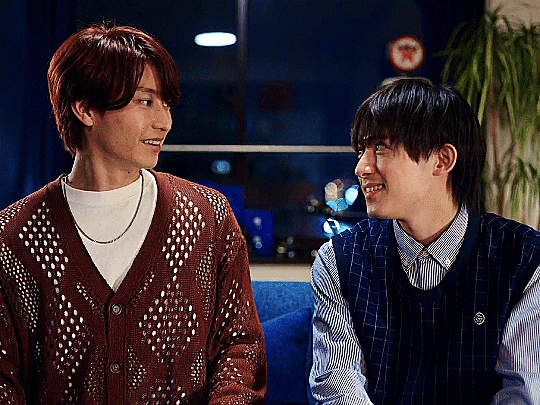
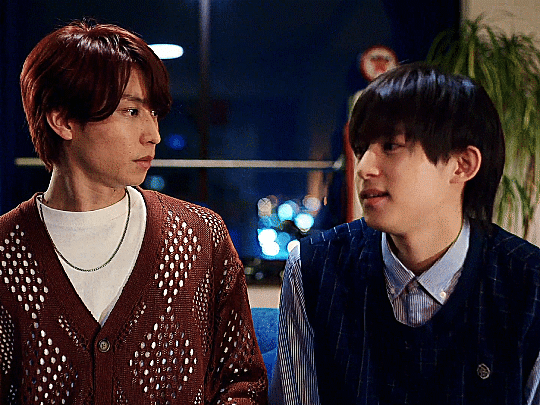
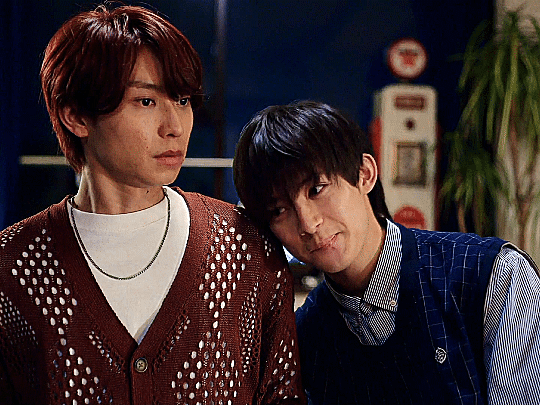
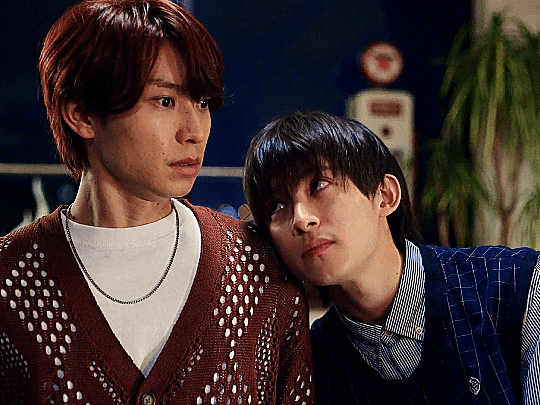
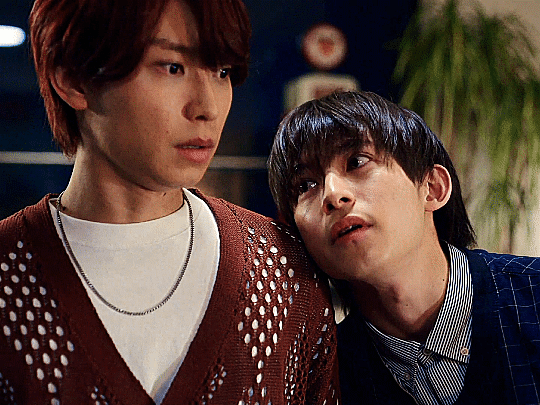
"Hajime-san? Hm? Are you maybe tired? Huh?"
ZOKU BL DRAMA NO SHUEN NI NARIMASHITA (2025) 2.01
128 notes
·
View notes
Text
41K notes
·
View notes
Note
Just want to preface this by saying no offence meant and I don't mean to be rude. But in that last post, you ended with "hell hath no fury like a woman scorned," and while I understand what you were getting at, it's important to be careful with our language around these issues. First calling them woman, considering some of the victims are underage minimises the whole thing. Second, they weren't scorned, they were abused. This is with all due respect cause I understand that you might just be using an expression, not fully realising its meaning and the way it comes across. But this isn't an easy subject to discuss, and our words really matter, especially for those of us who might be triggered by how these situations are framed.
yeah sorry about that i know i fucked up the moment i put that phrase in. it just Thai people being loosey goosey with words.
3 notes
·
View notes

